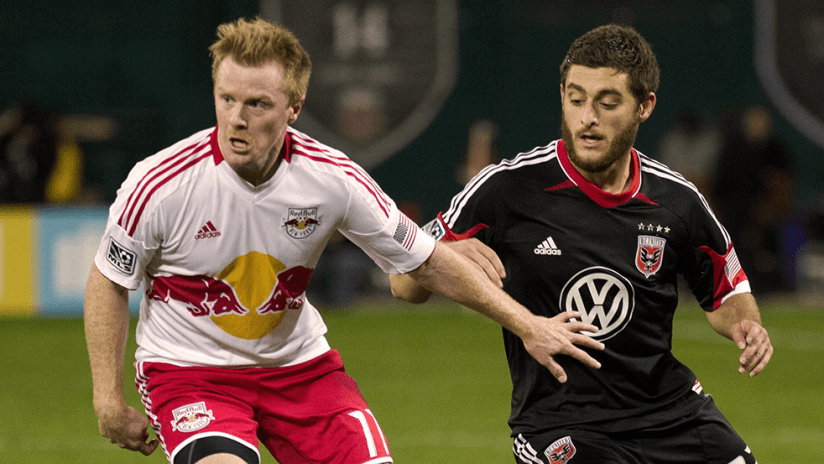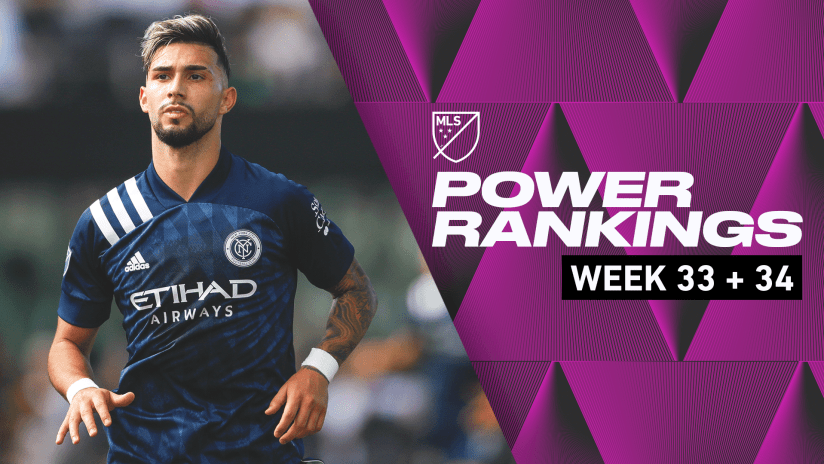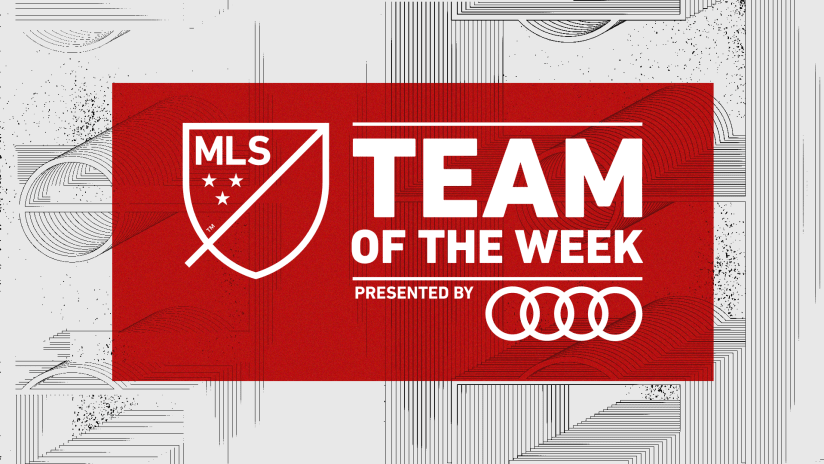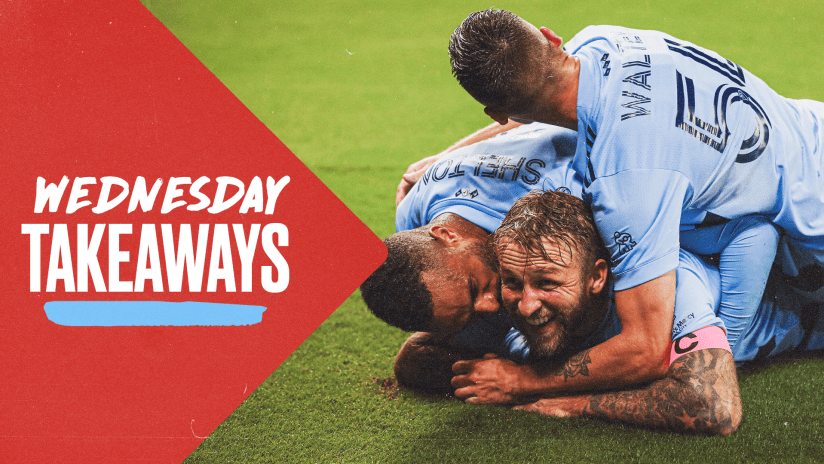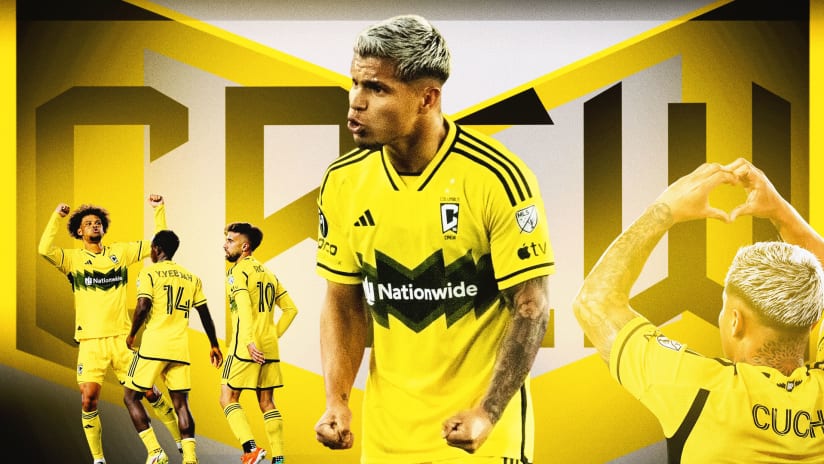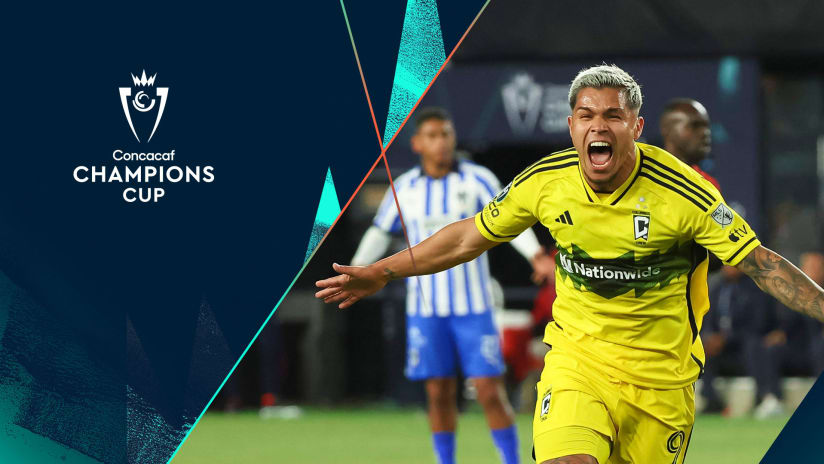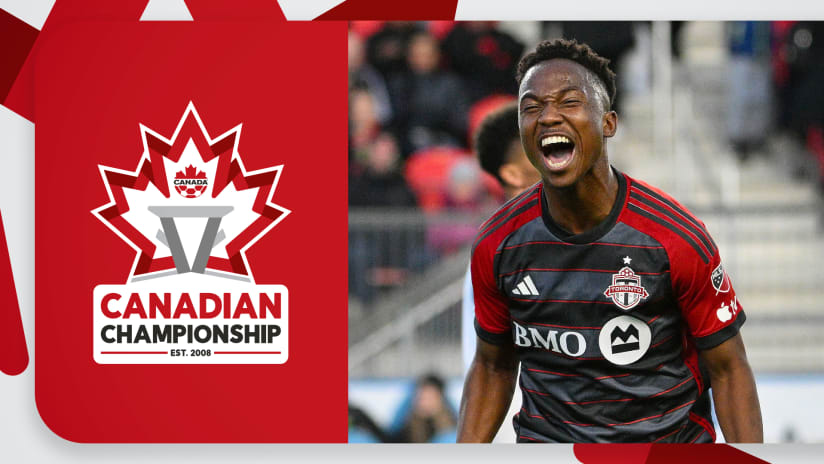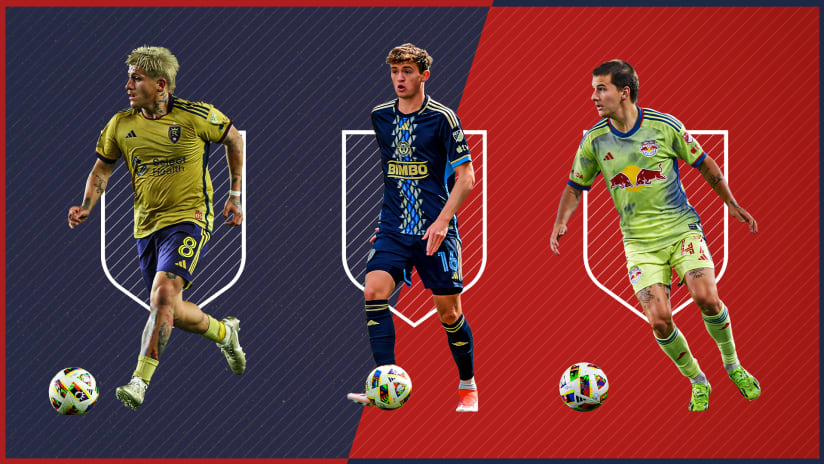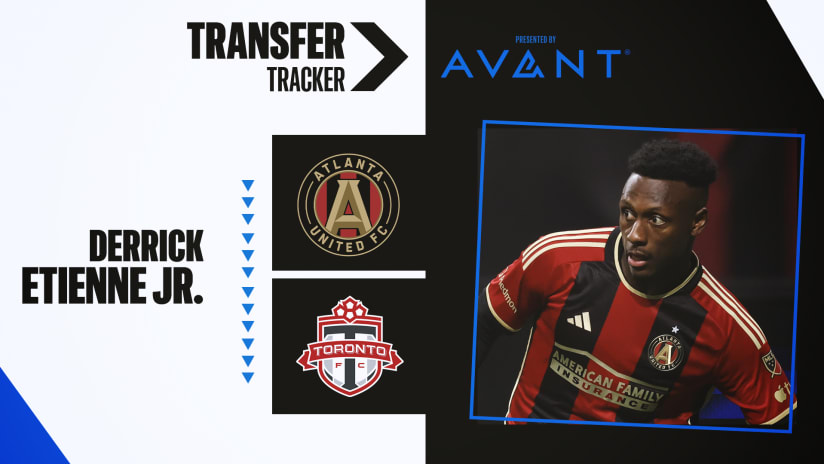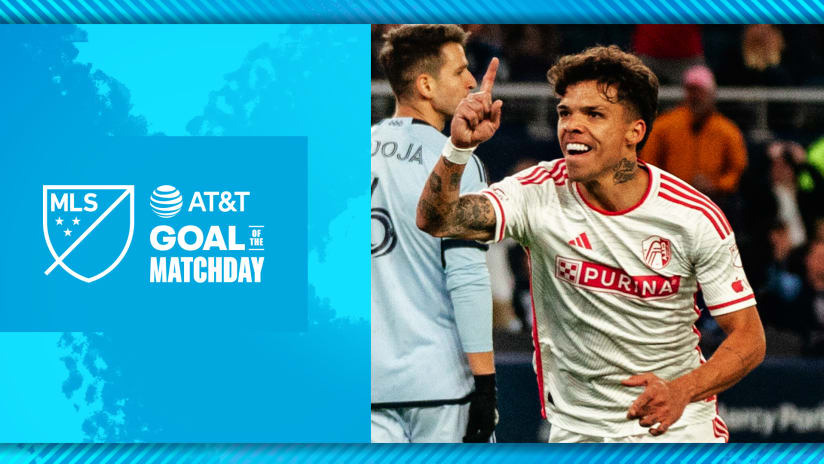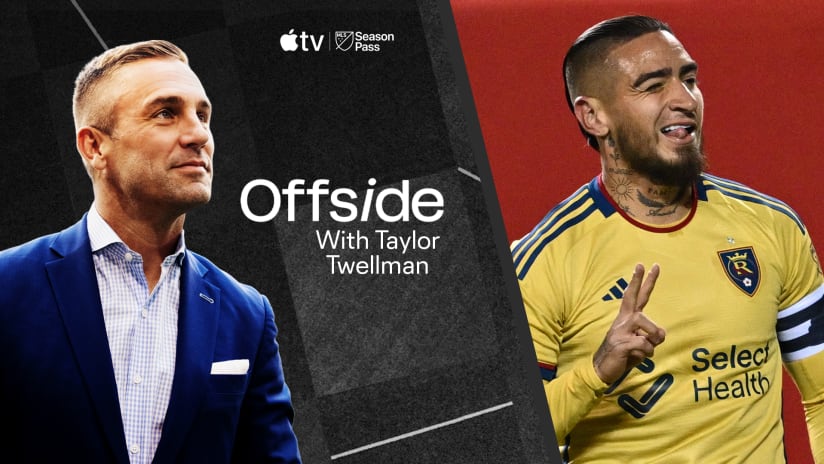It is the OG of MLS rivalries, one that dates back to the origins of the league. And there may not be a bigger regular season game, at least in a few years, than the one D.C. United and the New York Red Bulls play Wednesday (7:30 pm ET | MLS LIVE on ESPN+) at Audi Field.
On the strength of eight matches unbeaten, and four straight wins, the Red Bulls' torrid late-season run have pushed them into an Audi MLS Cup Playoff position with four matches remaining. D.C. United, conversely, are limping toward the finish line, with four consecutive matches without a victory, including a club-record 6-0 loss to New York City FC Saturday night.
Just two points separate the longtime foes, who are set for another chapter in a long history of Atlantic Cup animosity.
Roots of the Rivalry
The teams met four times during the regular season of the inaugural season, but the rivalry truly kicked into gear with the first postseason encounter that fall.
At the time, MLS Cup Playoff series' were best-of-three, and the teams split the first two games, setting up a winner-take-all third showdown at RFK Stadium.
Raul Diaz Arce broke the stalemate with an 89th-minute penalty kick as the Black-and-Red won the Conference Semifinals in dramatic fashion.
“In the second half, I thought we were dominating the game a little bit and it came down to a Richie Williams hand ball that wasn’t called on the line to save a goal. It turned the game around for me and then, of course, the PK,” Tony Meola told MLSsoccer.com in 2013. “I can remember when Rob Johnson went down for the slide tackle, I was screaming in my head ‘No!’ and that was the end of the season. But a great start to two teams really growing some hatred for each other right from the start.”
D.C. United went on to defeat the LA Galaxy to win the first MLS Cup. They’ve gone on to become one of the most decorated clubs in league history with 12 major titles, including three more MLS Cups.
The Red Bulls, rebranded from the MetroStars, have yet to hoist the Philip F. Anschutz Trophy, though they’ve won the Supporters' Shield three times.
The actual Atlantic Cup arrived for the start of the 2002 MLS season. While D.C. United enjoyed early dominance, the tide has shifted north with the Red Bulls claiming the cup three out of the last four years and seven of the last 11.
Memorable Moments
Over the course of more than two decades of games — 96 in total between the I-95 rivals — there’s a bevy of memorable moments that make this one of the league’s best.
We picked a few of wackier ones.
We head back to RFK Stadium on July 5, 2003 where then MetroStars coach Bob Bradley earned the moniker “Cheatin’ Bob” among D.C. United fans for exploiting a loophole in the now defunct fourth substitution rule (for goalkeepers only).
Then 16-year-old midfielder Eddie Gaven — remember him? — put on the goalkeeper gloves and stepped into the net for a 10-second stint in overtime before handing them back to Tim Howard. Gaven would then score the Golden Goal winner.
“I didn't know what was going on. [Bob] just said, ‘You're going in via some strange rule and you have to put on the goalie gloves and the goalie jersey first.’ Our team was going to try and hit the ball out of bounds then we were going to switch with Tim Howard,” Gaven recalled in 2013. “That's exactly what we did, and we ended up getting the ball. They made it very easy for me, very clear that as soon as it goes out, go up with Tim and exchange jerseys and just go out and play.”
When the MetroStars were rebranded to the Red Bulls in 2006, the teams met at Giants Stadium that April with a New Jersey native — Alecko Eskandarian — scoring a brace in D.C. United’s 4-1 win.
But it was his choreographed cerebration, in which he took a swig from a can of Red Bull before spitting it out in disgust, that was remembered most by fans of both teams.
It also earned him a $250 fine.
“As I’m drinking it – it was only the 41st minute – it occurs to me: I’m going to look like the biggest jackass if I cramp up. There’s too much soccer left to play. If they score, I don’t want to be on the bench because I drank an energy drink,” Eskandarian said. “At that moment, I thought it might be best to eject it from my system. And then I threw the can down as if that was what I meant to do the whole time. I wasn’t thinking a single thing about how it might come across, I was just having fun with the team name. I never meant for it to be disrespectful.”
The teams have played 13 MLS Cup Playoff matches, but the 2012 Conference Semifinals arguably topped them all.
Following a 1-1 draw in the opening leg at RFK Stadium and a postponement of the second leg due to inclement weather, the second leg at Red Bull Arena provided plenty of drama 24 hours later.
In the 69th minute, Bill Hamid was sent off and Kenny Cooper stepped up to take a potential series-winning penalty kick. However, it was called back for encroachment and replacement goalkeeper Joe Willis saved the second attempt.
Moments later, Rafa Marquez was sent off for the Red Bulls and Nick DeLeon fired home the 88th-minute winner for D.C. United, beginning his reputation for scoring MLS Cup Playoff screamers.
While there's a handful of Red Bulls’ killers who have donned the Black-and-Red, Bradley Wright-Phillips has found a way to anger many D.C. United fans.
On July 25, 2018, he scored the first Atlantic Cup goal at Audi Field, a second-minute strike that made him the fastest in league history to reach 100 regular season goals.
His celebration, which saw him rip off his No. 99 jersey to reveal a white No. 100 jersey to honor the occasion, earned BWP a yellow card. But it cemented the forward’s spot in the rivalry’s lore.
MLS regular season
Perhaps it speaks to the pendulum swings between the teams, but in 83 regular season matches, D.C. United have a slight 36-31-16 edge.
They’ve got a 139-120 goals advantage, which can largely be attributed to a pair of lopsided results.
On Sept. 16, 1998 at Giants Stadium, D.C. United cruised to a 5-0 victory, racing out to a two-goal lead on a pair of penalty kicks inside the opening 14 minutes against a MetroStars team, already decimated by injuries, that was reduced to 10 men in the seventh minute when Marcelo Vega was sent off for his second bookable offense.
The Chilean was carded first for embellishment and then handed his second yellow card for mockingly applauding the referee’s decision.
On July 3, 2004, Eskandarian struck for a brace, which at the time matched a club record for goals and Jaime Moreno had a goal and two assists in a 6-2 thumping at RFK Stadium.
D.C. United’s worst loss to the Red Bulls came on April 21, 2011 when Thierry Henry, Joel Lindpere and Juan Agudelo led New York to a 4-0 win at RFK Stadium.
U.S. Open Cup
Remarkably, with as much history as there is between the teams, they’ve met just three times in U.S. Open Cup play.
Arguably the most memorable meeting came in the 2003 semifinals, played at Rutgers University. A first-half brace by Amado Guevara erased an early deficit and gave the MetroStars a 2-1 lead that lasted until the final quarter hour.
Ronald Cerritos leveled for D.C. United in the 76th minute but John Wolyniec earned legendary status for his 88th-minute winner.
The Metros marched to their first major final where they fell at home to the Chicago Fire, 1-0.
D.C. United have cruised in the two subsequent Open Cup meetings, 3-1 in the 2006 quarterfinals, and 5-3 in a 2009 play-in match at RFK Stadium.
MLS Cup Playoffs
The postseason story is largely in D.C. United’s favor, with seven wins in 13 all-time meetings, including the aforementioned first-ever MLS Cup Playoffs matchup back in 1996.
D.C. United won again in 2004, 4-0 on aggregate, and Christian Gomez scored both goals in a 2-1 aggregate advantage two years later, his second coming four minutes from full time in the second leg.
After a third postseason ouster in 2012, the Red Bulls finally bested D.C. United in the playoffs in 2014 with Peguy Luyindula scoring both goals, including a critical away goal at RFK Stadium.
A year later, goals by Dax McCarty and Wright-Phillips ended D.C. United’s season and sent the Red Bulls to the Conference Championship.

